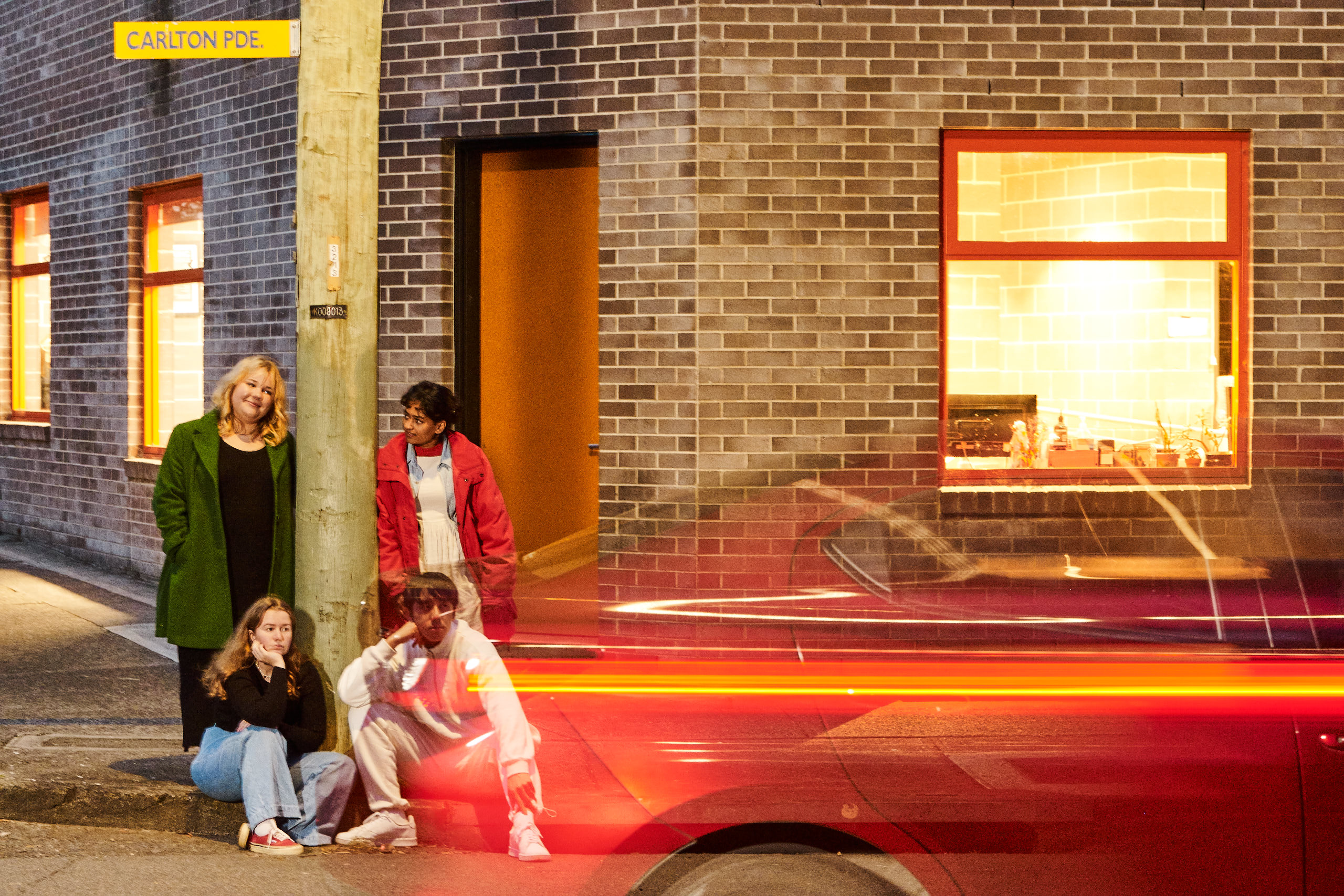UOW graduate Irelish Barker and 2nd year student Anna Krywyj Moore are both emerging artists working with Shopfront Arts Co-Op and Q Theatre Penrith in an artist residency program called ArtsLab. Along with two other artists, they have put together works for the ArtsLab: Drifters festival taking place at 107 Redfern and The Joan, Penrith. We had a chat with Irelish and Anna about the program and their time at UOW.
Kirsten: Can you share your experiences as emerging artists working with Shopfront Arts Co-Op and Q Theatre Penrith in the ArtsLab residency program?
Anna: It’s been a great process. I found out about it through the industry speed dating event, which Shopfront Arts are holding again this year. I attended that event and so many people when I sat down, and I was like, ‘I write plays’, they said ‘do Artslab’ and I think it was opening the next week, the applications.
It’s been great to be surrounded by people who know their stuff. They know the process and so many elements of production. Whenever I have a concern, they’ve got it or when I kind of go to them and I’m like, ‘I’m freaking out, how do I get the royalty to the song?’ They’re like, ‘it’s fine. We’ve done this a million times.’
As an emerging artist, it can feel quite isolating sometimes to feel like you’ve got to forge your own path and do your own thing, but I think with Shopfront, it felt like you were a part of something so supportive, with people that have done this before that know what you’re going through and you were in a process that you could trust.
Irelish: I found out about ArtsLab while I was at UOW because a lot of your UOW grads have done ArtsLab and/or work or collaborated with Shopfront. So, I always knew about it and I just knew that it was a place for emerging artists that I could pursue in the future.
This is the first time Shopfront Arts and Q Theatre have collaborated on ArtsLab. Usually, it’s just done here at 107 and this is the first time they’re doing a second season at The Joan. This is a cohort that supports and celebrates Western Sydney based artists, so they wanted to pick a theatre in the West. So that’s how we have the collaboration with the Q.
For most of us, this is our first time ever doing anything on this large of a scale, doing it at two venues but everyone is so like-minded, creative and supportive. So, it’s really easy for us to not be overwhelmed.
Kirsten: What inspired you to pursue a career in the arts? And how did your time and UOW contribute to your artistic development?
Irelish: Growing up, I always wanted to be involved in the arts. I went to an arts high school, I did heaps of different out of school stuff. Then, you get to a point in year 12, where you think the only place that you can pursue theatre art is at an elite drama school like NIDA or VCE. But UOW offer it as a degree, that’s not just out of pocket.
Being there is is how I realised that you could make an actual career as an emerging artist. It’s not going to just be struggling and never working. There are so many people who work locally in Wollongong or travel to Sydney and work for places like Shopfront. So that’s how I came about it.
Anna: Yeah, I’m still at uni. So, I’m very much in that space still. I was always in and out of being an artist. I think it was something I always loved but I had other loves and I thought ‘well, is this one less practical? Is this one going to be able to pay the bills?’
And so, I think I put it on the back burner for a very long time, but being at UOW has forced me to take it off the back burner a little bit and actually confront that this is something I love doing and it could be possible to love something that you do every day. It stopped being a secondary consideration. I realised that the degree that I studied and where I went, and my everyday job, mattered a lot more than I thought.
When you’re in high school and you pick a degree, you pick one that sounds cool, and you think you’d get good money. When you’re in it every day, it matters that it’s something that you love doing.
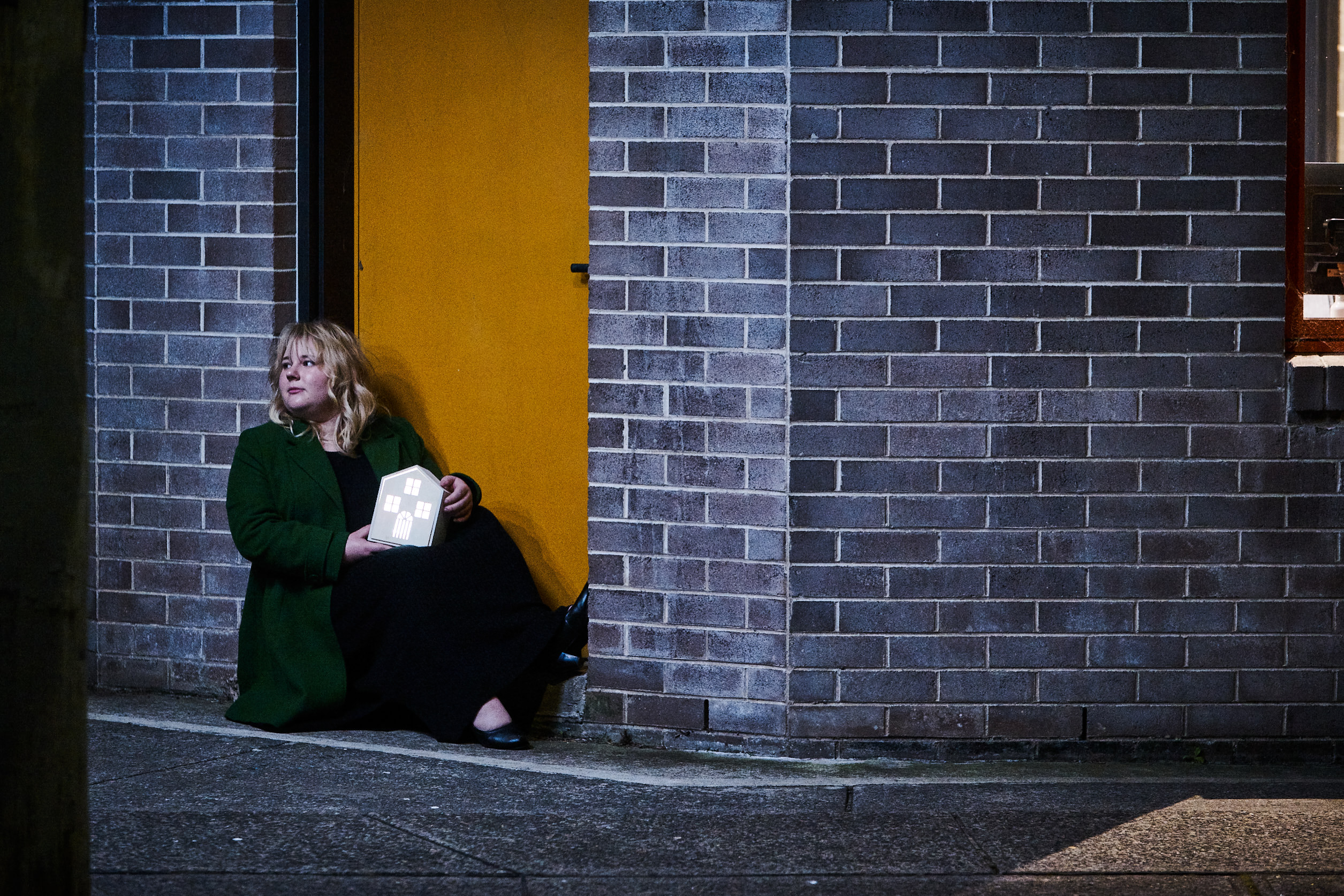
Kirsten: Can you describe the works that you’re putting together for the ArtsLab festival?
Anna: Yeah, so I’m writing Red Soup. Red Soup is a play – kind of a combination of performance poetry and theatre, exploring the war in Ukraine currently, but also World War Two and how that affected Ukraine and looking at these kinds of threads of history and how they continue. I think for me the story of Red Soup, it was always part of my life. I never fully knew my Oma or Opa, my great grandparents, who were Ukrainian because my Oma had very advanced dementia by the time I was young.
So, it was these stories that were passed down. My mum wrote a picture book called Red Soup that she would read to read to us, these stories mattered to me. When I visited her bedside, it was how I knew my Oma, through the story of Red Soup. So, I think for me, I’m kind of here to tell the story of Red Soup in a way of remembering because I think it’s incredibly important to remember right now, in amongst the current Ukraine War, where there’s a lot of cultural scattering, there’s a lot of forgetting, or trying to make people forget, happening.
I think it’s important to approach the metaphoric bedsides of our past and our culture and our history, and maybe get to know them a little bit better through stories. So that’s what it’s about. It’s about the stories and a character that’s trying to run from these stories and a character who is trying to tell these stories.
Irelish: I’m directing CURBSQUATTERS, which I started writing during 2022. I was going out a significant amount because COVID was over, the clubs were back open and I really wanted to fill my 20s with stories and memories and I thought forcing myself to go to heaps of gigs, clubs and parties would help me have this great well-lived 20s. And it did, because it gave me a bunch of content.
I was experiencing a bunch of things. And I was like, ‘this is kind of weird’ or, ‘this is kind of strange that this particular conversation keeps happening with strangers’, or every time I would go out, I’d be making best friends with some girl in the bathroom that I’ve never met before and the end of the night, I’m telling her how much I love her. I was also having, situations with strangers, mainly strange men who were putting me in very uncomfortable situations.
So, I would write about all of this, in my notes, because I keep my notes app as a diary. Then I worked on a show called Feral Women with UOW graduates ‘Crush Collective’. By writing that and working with all of these female-presenting and gender queer artists who have such powerful voices in their writing. I was like, ‘wow, like I want to keep writing now.’ So, I just compiled everything over the last six months and began writing it into a play.
The actual play itself has developed into a mix of absurd theatre and realism. It explores friendships and human connection. Also, it explores a little bit of love and a little bit of ‘what’s the difference between love and lust?’, wanting to be in love with the idea of love and how desensitised a lot of young people are to dangerous or threatening situations because they’re so commonly experienced.
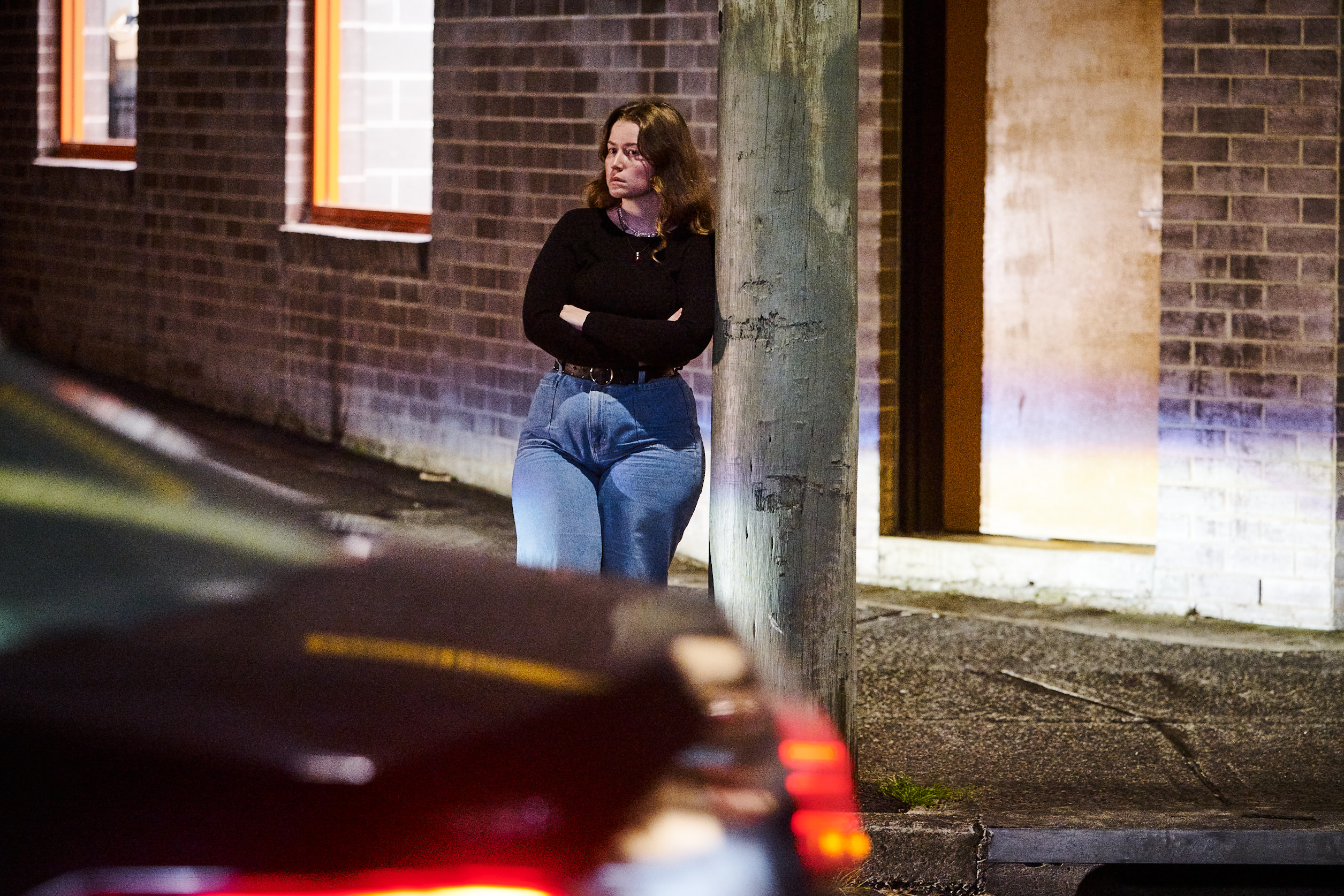
Kirsten: What challenges have you encountered as emerging artists? And how have you overcome them?
Irelish: There’s sometimes more challenges than gain being an emerging artist. I feel like I came out of uni and thought I’d have so many opportunities and so many things I could be a part of. That wasn’t really what happened. It was a year of not really doing what I thought I would have been doing by that point.
I feel like a lot of politics is in theatre. There’s a lot of certain theatres that have been run by the same kind of people for 100 years – usually white men, right. Or they pick these plays that are classics, which is a big thing at uni. I had some tutors that were all about the classics and all about ‘you have to be good at being an artist, you have to do this certain thing you can’t break away from it.’
So, I think a lot of that difficulty I had out of uni was that I didn’t want to do the unnecessarily traditional path of being an artist and I want to do more stuff that’s fun and experimental and not so classic – there are other things that are just as interesting and just as important for the arts as the classics. Being a ‘good’ artist is so against what the entirety of what being an artist is about.
Anna: Coming from Western Sydney, I think there are a lot of barriers. I didn’t grow up going to the theatre every week. I haven’t seen a lot of theatre works at Sydney Theatre Company and the Opera House. If I saw theatre, I went to The Joan, which is great, The Joan shows great performances, but not necessarily the performances that when you get in a room with other artists and you need to network, they’re not referencing those performances.
I think, as an artist from Western Sydney, it’s always felt like I was trying to take a step in an area that I wasn’t always able to as easily as others. I needed to always put in more effort than some other people did. I had to sit on the train for an hour. I didn’t have the connections to get the tickets or things like that. I couldn’t be in the rooms that I needed to be, where I wanted to be, to make those connections that would have given me that upper edge.
I think Sydney has been the arts hub for so long, that being outside of that does sometimes feel a little bit isolating. So, I think feeling defeated a lot by my lack of experience and my lack of seeing the shows that I wanted to see was a real challenge for me, which is why Shopfront has been so great. You meet so many amazing people, you have a door into so many amazing other programs.
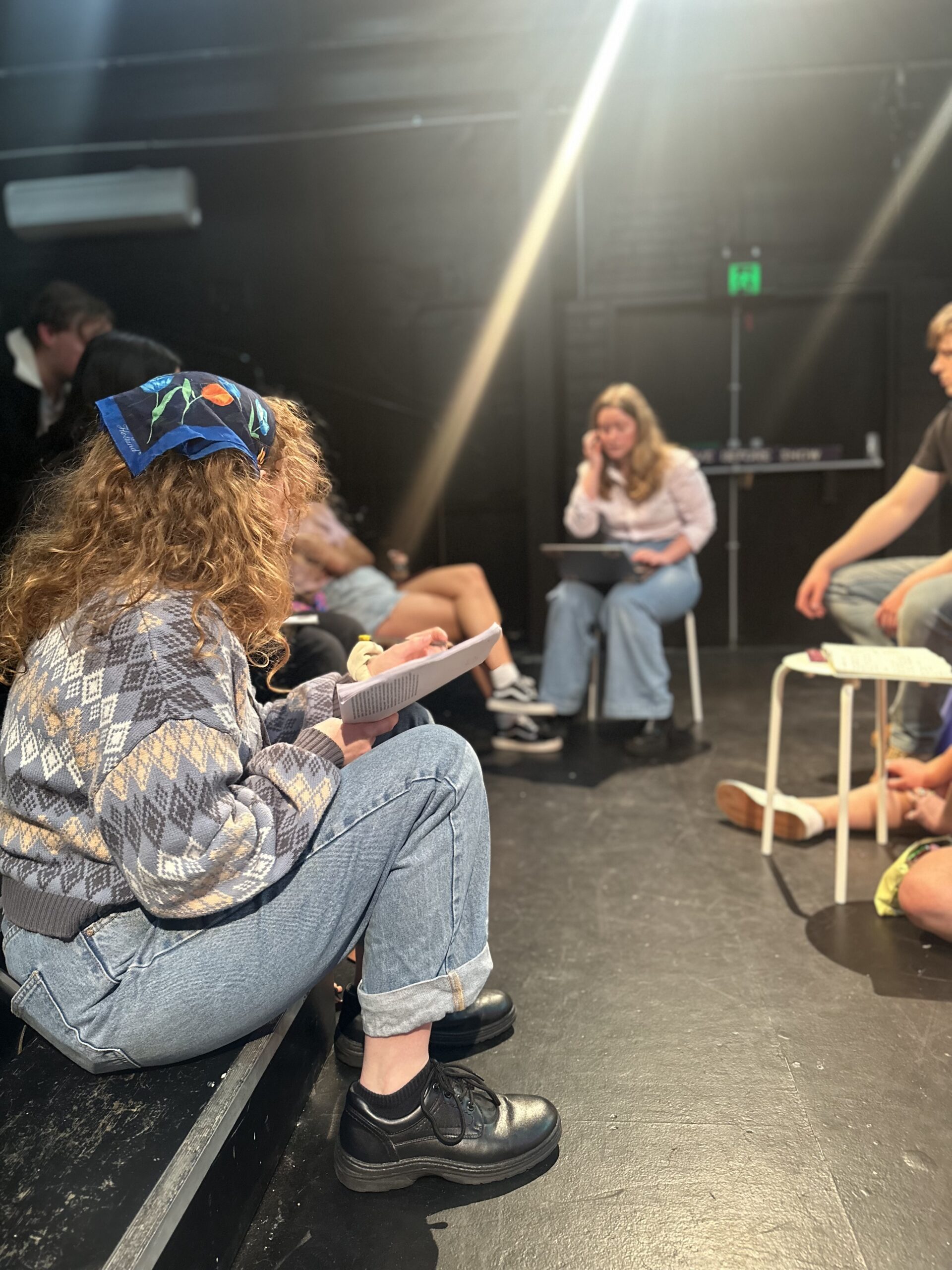
Kirsten: Could you share some insights into the importance of artists residency programs, like Arts Lab, in supporting and nurturing young talent in the industry?
Irelish: Residency programs like ArtsLab are tremendously important for emerging artists because you’re not only with other emerging artists that you have as a support system, but you’re also surrounded by industry professionals who have been doing it for so long and are so open, kind and helpful. There’s so much that goes into putting on a show but you have the support of an army of industry professionals and people who want to uplift emerging artists.
Especially ArtsLab, we do masterclasses with industry professionals, we do speed dating. We meet a bunch of industry professionals and get to speak to them and you can get mentorship from an industry professional – you can you have 14 hours in person with them – that’s been super helpful for me having someone that’s been in the industry for so much longer than I have, giving me advice and feedback and helping me develop the show.
Anna: It opens so many doors that would otherwise been closed. It’s not just having other people who believe and care about your artwork, like you do, it’s people that are willing to invest in that artwork to help make it happen. It’s connections that you’re able to make. It’s something that you could put on your resume when they want you to have put on a certain number of shows, so that you can apply for this arts position.
It gives you that kind of ability to be able to advocate for yourself as an artist. Also, it provides you with so many valuable skills. We know so much more about what goes into a show now. It’s been amazing to be so immersed in the world of the arts for like six months. These projects were something we both really cared about, to be able to invest in them has been really enriching.
Kirsten: What advice would you give to students who are interested in pursuing a career in the arts and transitioning from university to the professional art scene.
Irelish: Don’t be afraid to apply for things. An issue I had was that I didn’t want to apply for things because I didn’t want to get rejected. If you have that idea in your head, you’re just putting it out there into the world. Whereas if you’re applying for things, and you’re going to seeing a lot of the art that you’re interested in; if you’re a visual artist, you go to galleries, small indie galleries openings. Meet people and network. Then if you’re into theatre, go to theatre shows, go to emerging indie theatre. Really, for anyone in the arts, just immerse yourself in the environment and immerse yourself with other creatives. Don’t be afraid to put yourself out there.
Anna: Someone told me to always apply for things. Even if you’re like grossly underqualified – apply for them and they will remember your name. Then apply to them in the next year when you have a few more qualifications. That person won’t even remember you but they will recognise the name from somewhere. Maybe you won’t get it but then you’ll apply again, they will see this person really cares.
There is something in being really, really persistent and annoying. Mostly, I think a big thing in art is just to have the audacity to be there and to stand in spaces that you might not necessarily be always invited into. I think it’s having the audacity to say like, ‘yeah, I know, I’m still in uni, but I can do this. I know I can do this.’ That takes something to be able to put yourself out there and to believe in yourself. I think a lot of being an artist is just doing that, until it sticks.
Check out the festival in Redfern this week or in Penrith from November 9-11, tix on sale now!
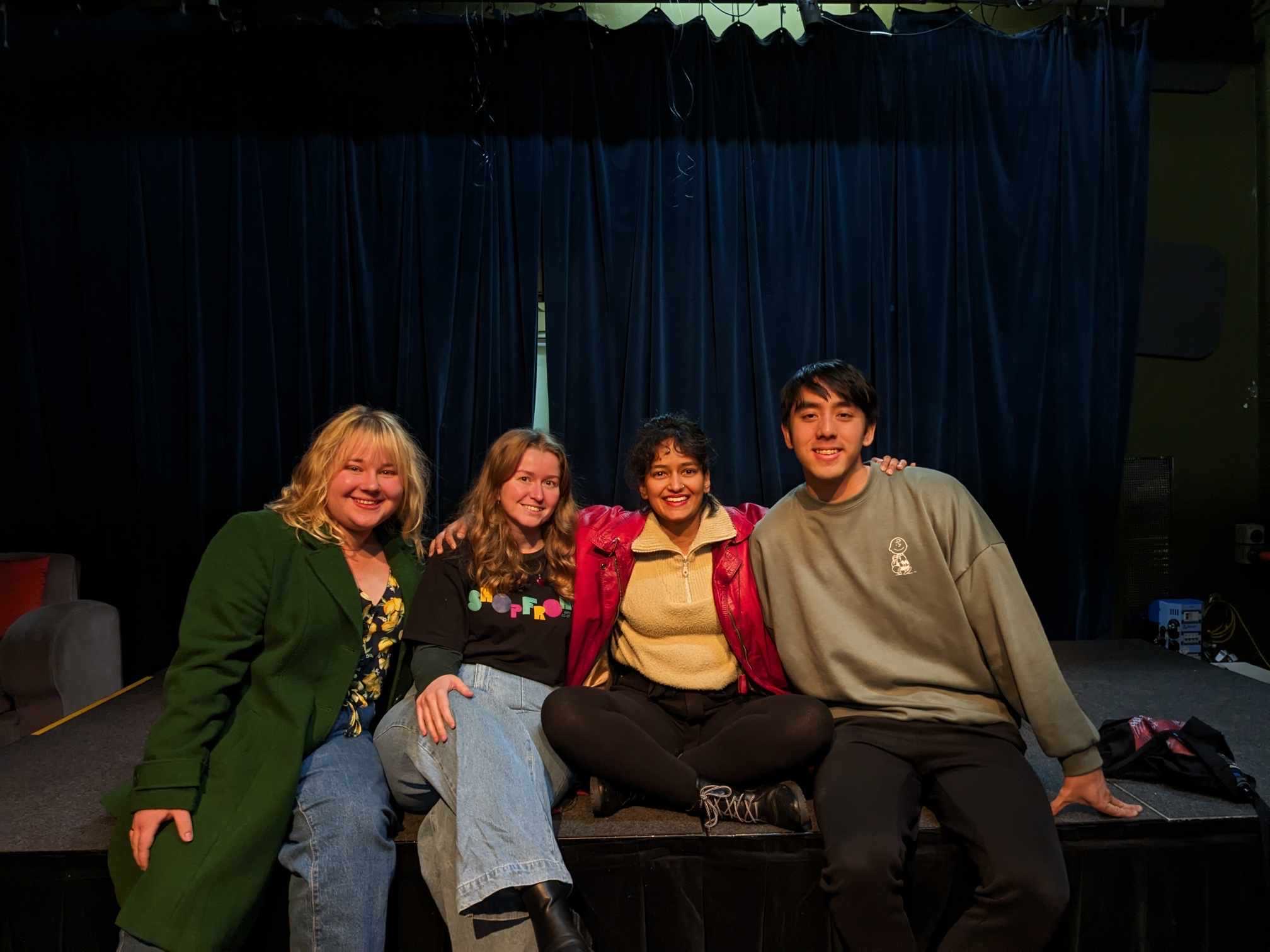
This article has been edited for brevity and clarity.
Feature Image Credit: Joshua Morris.

